Najnowsze Wydania
-
GN 50/2025 Dokument:(9523960,Przysypane perły, zapomniane diamenty)

-
Historia Kościoła (13) 01/2026 Dokument:(9518411,W listach (do) Jana Pawła II najważniejsze jest to…że w ogóle zostały napisane)

-
GN 49/2025 Dokument:(9515780,Szlachetne ryby i morskie potwory)
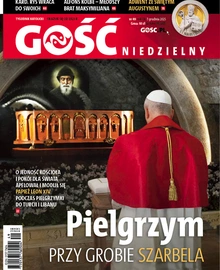
-
Gość Extra 4/2025 (14) Dokument:(9516809,Biblijna szkoła codzienności. Edytorial nowego wydania „Gościa Extra”)
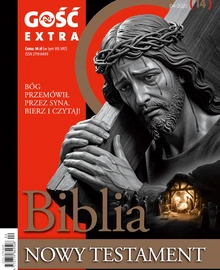
-
GN 48/2025 Dokument:(9507866,Metoda na życie)
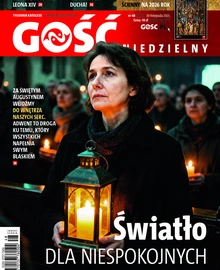
We should care for the future of Christianity in the East-central Europe
There is no room for complacency because of the packed churches since we are facing the process of ‘creeping secularisation’. The situation will not improve unless the churches in the East and Central Europe propose a qualitatively new offer for the believers.
Prof. András Máté-Tόth from Hungary based his speech on the thesis that restoration is necessary, but only if it includes the heritage of the bruised post-communist society. Before 1945, the Hungarian Church was strong. Communism caused a breakdown of both faith and the trust in Church as an institution. A revival of religious life has been observed since 1978, but the number of people traditionally appurtenant to Church is constantly dropping. The Hungarian delegation highlighted that the crisis of faith and religiousness in their country had always been incident to the Church being treated instrumentally by governments, and the political involvement of the clergy. A similar trend can be observed now. – Priests should be autonomic – emphasised the Hungarians present in Prague.
– Numerous, small countries, also Hungary, have dreamt about autonomy for years. And since we recovered it, we need to restore solidarity in the times of independence - stressed Prof. Máté-Tόth. He referred to the idea of solidarity coined by John Paul II in ‘Solicitudo rei socialis’. – We should attempt to understand, within modern Christianity, that the resurrected Christ, who is stronger than what we are surrounded by, is the centre of our faith.
The Hungarian recommendations included necessity of internal restoration of Christianity through deepened formation of priests, nuns, catechists, leaders of religious life, and communities. It was also noted that the Church should be in the very centre of society, not in the superior position. It should also be solidary with people, especially with the ones from the margins. The recommendations also included an indication to change church language so that it was more dynamic and authentic. Education of new leaders of religious life shouldn’t be just ‘copying of masters’.
The leader of the Polish delegation Dariusz Wadowski Ph.D. from the Faculty of Social Sciences at The John Paul II Catholic University of Lublin, emphasised that according to the 2014 CBOS (Centre for Public Opinion Research) research over 89 percent of polish society claimed Christian association. People referred to as unreligious or without defined religious community constituted for approximately 3 to 5 percent. According to his presentation, Christianity in Poland is a completely dominant religion. Faith is relatively strong, but the process of ‘crawling secularisation’ is also present. The fact is that those, who claim to be believers tend to doubt in the existence of God. They believe in reincarnation or don’t believe in the eternal life. The Polish religiousness is also based on the participation in religious ceremonies associated with family and social life. – A growing rift between the moral teaching of the Church and the everyday practice of the believers is observed – Wadowski said.
Przemysław Strzyżyński from Adam Mickiewicz University in Poznan, Poland - indicated the necessity to change the current functioning of certain Polish parishes. They should become communities and not anonymous gatherings of people who leave the Church’s building straight after the service and aren’t connected to each other in any way. – The parish should be a place for integration and construction of a community, which can provide answers to difficult questions, support its members in difficult times. Another postulate of the Polish group was a necessity to change theological and church language. Also at the level of education in seminars. – We need a new form of apologetics in order to legitimate and explain the meaning and sense of Christianity – Strzyżyński stressed.
The representative of the Polish church leaders suggested that we should put an emphasis on the understanding of the importance and influence of the media, which to a great extent create religiousness and affect faith. – If we talk about cultural and religious faith, then we should indicate media influenced faith – he noted. His another indication was the need for departure of the leaders and church communities from direct political involvement towards social activity. – Despite the fact that young people go to church, they don’t trust institutions. We shouldn’t fear the diversity of faith forms, both in Christ and individualities. He added that the actuality of Christ’s message means that we often forget about his teachings.

Polecane w subskrypcji
-
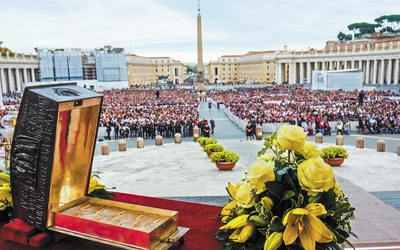
- Temat Gościa
-

- Świat
-

- Duchowość
-
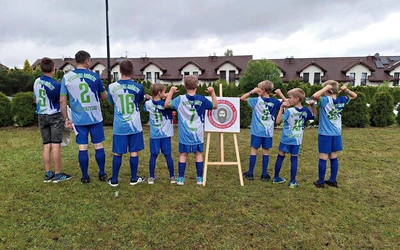
- Kościół



















